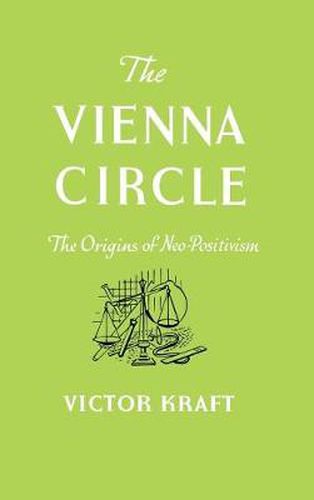Readings Newsletter
Become a Readings Member to make your shopping experience even easier.
Sign in or sign up for free!
You’re not far away from qualifying for FREE standard shipping within Australia
You’ve qualified for FREE standard shipping within Australia
The cart is loading…






This title is printed to order. This book may have been self-published. If so, we cannot guarantee the quality of the content. In the main most books will have gone through the editing process however some may not. We therefore suggest that you be aware of this before ordering this book. If in doubt check either the author or publisher’s details as we are unable to accept any returns unless they are faulty. Please contact us if you have any questions.
Have you ever wondered what it would be like to sit in on a meeting of the Vienna Circle, listening to discussions by the greatest Austrian thinkers of the 20th century, including Moritz Schlick, Gustav Bergmann, and Karl Menger? Join original Vienna-Circle member Victor Kraft in his discussion of the movement for an exclusive insider’s view of this important point in philosophical history. In this in-depth philosophical study, Victor Kraft explores the role the Vienna Circle had on the international philosophical movement. The Vienna Circle constituted a point of departure for the reawaking, rebirth, and reformation of positivism and empiricism, leading to the creation of the Neo-positivism movement. At the time of publication in the 1950s, the Neo-positivism movement stood in the foreground of contemporary philosophy, and it was quite possibly the most significant serious philosophical movement in the period between the two world wars. Making Kraft’s study of Neo-positivism available to a world audience, Arthur Pap provides a rich and accessible translation from the original German. Victor Kraft was an Austrian philosopher and a founding member of the Vienna Circle. He taught theoretical philosophy at the University of Vienna. During World War II, he lost his teaching post because of his wife’s Jewish background, but he went back to teaching in 1945. He was known for his scientific approach to philosophy, especially his application of empiricism to his ideas on logical positivism. He continued to teach at the university and write on logic, ethics, and the philosophy of history until his death in 1975.
$9.00 standard shipping within Australia
FREE standard shipping within Australia for orders over $100.00
Express & International shipping calculated at checkout
This title is printed to order. This book may have been self-published. If so, we cannot guarantee the quality of the content. In the main most books will have gone through the editing process however some may not. We therefore suggest that you be aware of this before ordering this book. If in doubt check either the author or publisher’s details as we are unable to accept any returns unless they are faulty. Please contact us if you have any questions.
Have you ever wondered what it would be like to sit in on a meeting of the Vienna Circle, listening to discussions by the greatest Austrian thinkers of the 20th century, including Moritz Schlick, Gustav Bergmann, and Karl Menger? Join original Vienna-Circle member Victor Kraft in his discussion of the movement for an exclusive insider’s view of this important point in philosophical history. In this in-depth philosophical study, Victor Kraft explores the role the Vienna Circle had on the international philosophical movement. The Vienna Circle constituted a point of departure for the reawaking, rebirth, and reformation of positivism and empiricism, leading to the creation of the Neo-positivism movement. At the time of publication in the 1950s, the Neo-positivism movement stood in the foreground of contemporary philosophy, and it was quite possibly the most significant serious philosophical movement in the period between the two world wars. Making Kraft’s study of Neo-positivism available to a world audience, Arthur Pap provides a rich and accessible translation from the original German. Victor Kraft was an Austrian philosopher and a founding member of the Vienna Circle. He taught theoretical philosophy at the University of Vienna. During World War II, he lost his teaching post because of his wife’s Jewish background, but he went back to teaching in 1945. He was known for his scientific approach to philosophy, especially his application of empiricism to his ideas on logical positivism. He continued to teach at the university and write on logic, ethics, and the philosophy of history until his death in 1975.